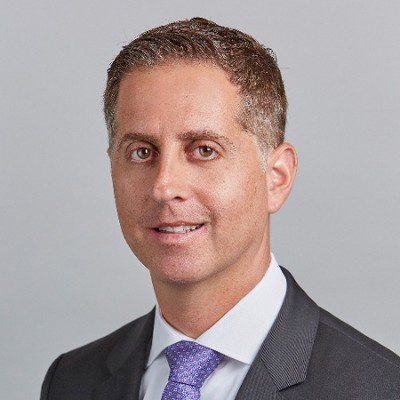
As a partner and national security sector lead at Guidehouse, John Saad leverages a unique mix of talented personnel to support federal customers. With teams evenly split between government work and private sector clients, Guidehouse can deliver deep federal insights backed by the latest commercial-sector leading practices.
“We staff our projects with the right mix of people, including those with commercial expertise who have delivered solutions in the private sector, and those who are already aligned to the mission of our government clients,” he said.
Supported by that unique mix, Guidehouse is helping federal agencies navigate a range of needs around data strategy, cybersecurity, mission transformation and finance innovation.
Advanced Solutions
To effectively tackle that breadth of demands, the company has organized an internal advanced solutions unit.
“That’s where we house and develop all of our technologists who are trained up on the latest platforms that we help to deploy,” Saad said.
This business structure enables Guidehouse to develop and deploy innovative solutions repeatable across agencies.
“We pride ourselves on developing solutions that can be used in multiple instances,” Saad said. “We may develop something for one client within our portfolio, and then we encourage another client to leverage that same solution, as opposed to starting from scratch. We can tailor it and tweak it for them, but they don’t need to start from scratch.”
This approach has enabled Guidehouse to support agencies as they look to improve their data analytics and visualization in support of managing large, complex programs. The firm has helped clients shore up their cybersecurity defenses, and has delivered solutions in support of mission transformation, including talent management aimed at developing the workforce of the future.
A special area of interest for Guidehouse has to do with finance innovation and optimization. The company has its roots in that area, having grown up out of the venerable accounting firm PwC.
“In the early years, much of our initial work in the national security space was supporting the testing and implementation of our clients’ controls over financial reporting and operations,” Saad said. “We’ve expanded that significantly over time. We are modernizing those financial systems, embedding automation to support compliance with regulations, to really drive the future of financial management for these federal departments and agencies.”
National security agencies have made big advances in the realm of auditability, in their implementation of various types of financial controls.
“They are better able to identify, track and prevent waste, fraud and abuse,” Saad said. “We see a lot of opportunity for GovCons to continue to bring continued innovation to that space.”
Looking Forward
In terms of business strategy, Saad said the GovCon community may need to rethink its approach to the federal market.
“There’s going to be large-scale transformative opportunities from data, talent and systems perspectives,” he said. This approach requires a more forward-looking mindset.
“If you’re counting on winning contracts and just winning them in recompete again and again, that’s probably not the best approach,” he said. “You should constantly be innovating and adding value, looking for things that will help your client with the next challenge.”
As routine work becomes commoditized, Guidehouse, for example, is looking for new ways to deliver higher-value products in the government space. The role of the GovCon, Saad said, is to help government to get the most value for its dollar.
“What’s going to help them increase mission impact and be more efficient? You can’t be complacent in the GovCon space,” he said. “You want to be the one who brings the greatest value, the one who is constantly looking at how you can do more for your clients.”
To meet that high bar, Saad puts a heavy emphasis on personnel, with an eye toward recruiting individuals with a special passion for public service, along with deep technical expertise.
“We want people who have a passion for the mission,” he said. “It’s a competitive market, so we use some nontraditional approaches to finding talent, partnering with organizations that other entities may not have thought of. We’ve got relationships with different groups, organizations with memberships that are focused on national security issues. By supporting those types of entities, it’s a way for us to brand ourselves and to meet people in a nontraditional fashion.”
For Saad, who began supporting the public sector after 9/11, this work has special personal significance.
“I left my commercial consulting work to join a team that had a contract for the 9/11 victim compensation fund,” he said. That experience helped spark his passion for public service. “I couldn’t think of anything better than to support the national security mission,” Saad added.
As national security sector lead, he describes having a feeling of “clear purpose” in his role.
“As we look at homeland security and the national security mission set, there is just a tremendous amount of need,” he said. “As someone who loves this country, I want to be part of that. It’s incredibly exciting to come to work every day and to think about how we can contribute.”

